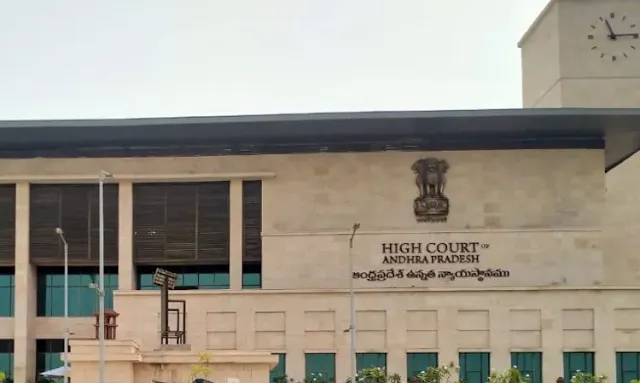In a landmark judgment, the Andhra Pradesh High Court has affirmed that a daughter's marital status does not disqualify her from claiming compensation for the death of her father in a motor vehicle accident. Justice VRK Krupa Sagar, presiding over the case, emphasized that both married and unmarried daughters are legal heirs and, therefore, possess the right to seek such compensation. This ruling underscores the principle that eligibility to claim is distinct from the extent of dependency, which must be substantiated with factual evidence.
The case involved an appeal under Section 173 of the Motor Vehicles Act, 1988, filed by an insurance company, alongside a separate appeal by the deceased's second wife. The deceased, employed as a public health worker with a monthly salary of ₹6,728, tragically lost his life when struck by a milk van. His married daughter and second wife sought a total compensation of ₹4,00,000 from the vehicle's owner and the insurance company. The Motor Accident Claims Tribunal awarded them ₹3,77,000 with an annual interest rate of 7.5%, holding both the vehicle owner and the insurer liable.
The insurance company contested this decision on several grounds:
-
Excessive Compensation: They argued that the amount awarded was disproportionately high.
-
Driver's License Validity: At the time of the accident, the driver allegedly lacked a valid and effective driving license, constituting a breach of the insurance policy.
-
Marital Status of the Daughter: They contended that the married daughter was not a dependent and, therefore, ineligible for compensation.
Additionally, the second wife appealed for an enhancement of the compensation, asserting that the initial award inadequately covered funeral expenses and did not account for loss of consortium.
The High Court's deliberation focused on several pivotal issues:
-
Entitlement of a Married Daughter to Compensation: The court reaffirmed that a daughter's right to claim compensation remains intact irrespective of her marital status. Justice Sagar highlighted that while eligibility to claim is one aspect, determining the quantum of compensation based on dependency is another. He noted that marriage does not necessarily sever a daughter's dependency on her father; the extent of such dependency is a factual matter requiring evidence. This perspective aligns with previous judgments emphasizing that married daughters should not face discrimination in compensation claims under the Motor Vehicles Act.
-
Status of the Second Wife as a Dependent: The court examined whether the second wife qualified as a dependent entitled to compensation. This assessment hinged on the nature of her relationship with the deceased and her financial reliance on him.
-
Validity of the Driver's License and Insurance Liability: The court scrutinized the claim regarding the driver's purported lack of a valid license and its implications for the insurance company's liability. The outcome of this inquiry would determine whether the insurer could be absolved of its obligation to pay the awarded compensation.
In its judgment, the High Court upheld the principle of non-discrimination between married sons and daughters in matters of compensation. This stance resonates with similar rulings from other jurisdictions. For instance, the Karnataka High Court has also recognized that married daughters are entitled to compensation for the loss of their parents in accidents, emphasizing that dependency encompasses various dimensions beyond mere financial support.
Furthermore, the Andhra Pradesh High Court has previously articulated that the dependency of major children is immaterial when claiming compensation as legal representatives of a deceased parent. This perspective reinforces the notion that all legal heirs, regardless of age or marital status, have the right to seek compensation, with the extent of dependency influencing the quantum rather than the eligibility of the claim.
The court's decision also touched upon the broader societal implications of recognizing the rights of married daughters. By affirming that marriage does not sever a daughter's ties to her parental family, the judgment challenges traditional notions that often marginalize married daughters in inheritance and compensation matters. This progressive interpretation aligns with the evolving legal landscape that seeks to promote gender equality and dismantle entrenched biases.
In conclusion, the Andhra Pradesh High Court's ruling serves as a significant affirmation of the rights of married daughters to claim compensation for the loss of their parents due to motor vehicle accidents. By distinguishing between the eligibility to claim and the assessment of dependency, the court provides a nuanced framework that accommodates the complexities of familial relationships. This judgment not only upholds the principles of equity and non-discrimination but also sets a precedent for future cases, ensuring that marital status does not unjustly impede a daughter's rightful claims as a legal heir.










0 Comments
Thank you for your response. It will help us to improve in the future.